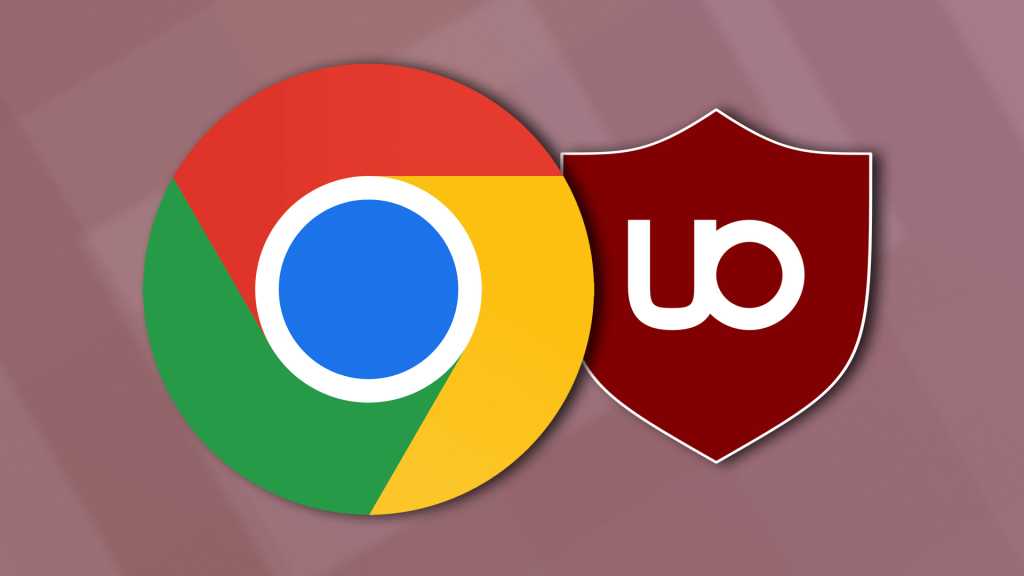uBlock Origin will soon stop functioning in Chrome as Google transitions to new browser extension rules.
The ad company blocking an ad blocker is totally about security
- Google stans
deleted by creator
With this change, extensions can “only” alter/inspect/redirect/block 30,000 domains if they use the webRequest API. That’s not enough to build uBlock Origin with, but at least there’s limit now.
That seems like an arbitrary number. Why not 20,000? Or 300,000? What the hell is this limit even for? Even malware can still target 10 domains and do some significant damage. So, what the hell is the point?
Remember, politicians don’t pass racist laws by directly saying they are excluding PoC into the law. They do it by targeting commonalities that happen to apply to PoC.
Google isn’t going to flat-out say they are blocking uBlock Origin. They are going to do it by implementing “security features” that just so happen to target only uBlock Origin.
[This comment has been deleted by an automated system]
“For the security” is starting to sound a lot like “for the children”. I hope this works out better than secure boot. When these new ideas emerge that have, let’s call them, “side effects” like disabling ad-blockers or preventing Linux from being installed I am suspicious.
Google clearly shows their intent by not providing an alternative API for content filtering, but that doesn’t mean there are no security concerns. Malicious extensions have become so prevalent that Mozilla had to switch to only permitting signed extensions (despite community outroar) because shitty companies were inserting their extensions into the users’ profile directory without permission and breaking websites and even Firefox itself in some cases.
Secure Boot requires the user to be able to turn it off, so if it gets in the way of anyone, it’s implemented wrong. Microsoft has a weird certification system for “super duper secure” laptops or whatever they call it where only their private key is loaded, but that’s a small amount of expensive business laptops.
If anything, Secure Boot is an example of the “just let me turn it off if I want to” crowd making computers less secure for the majority because Microsoft allows booting a whole bunch of Linux distros on supposedly locked-down systems, which has been proven to make other attacks possible (like that recent one on Lenovo laptops where a Linux boot disk could insert a fingerprint into the fingerprint reader that would unlock TPM-based encryption).
Nobody is preventing you from installing Linux through secure boot. In fact, you can take control of your secure boot settings and prevent anyone from installing Windows on your computer without your password.
if google cared, they’d vet ads and ad links, and guarantee their safety and security.
if google cared, they’d put a stop to seo ‘optimizers’ and scammers scoring top positions on serps.
but google doesn’t care about anything other than their profits and share price.
adblockers can affect both of those. they’re using the weak cover of ‘security’ enhancement to neuter them.
existing adblockers provide more safety and security than what can be realized by the shift to mv3.
This is the most succinct, unbiased explanation I’ve seen for this change. Thank you for this! It’s good to know there’s an unintended security improvement in their otherwise brazen attempt to kill ad blockers on Chrome.
Fuck Google.
deleted by creator
At this point, using Firefox and an ad blocker does more for the climate than paper straws or recycling.
Even with ad blocking, half of consumer internet traffic is ads. Google is contributing to increasing this ratio, where most traffic on the internet will be stuff the client did not request, contributing more to climate change than Bitcoin - not that this makes crypto look better, they are just a useful milestone to compare to with the press they get.
And this doesn’t include the idiotic AI shit they do.
I’m pretty sure the traffic for the ads still gets sent to your device over the Internet, it’s just that the ad blocker keeps it from rendering in your browser.
No, the adblocker usually blocks the request before the data gets sent to the device. It’s why pages load faster with an adblocker
It’s a mixed bag. Some ads are bundled and filtered, but most actually rely on external requests to ad exchanges. What happens mostly is that when there is an ad spot in the page you downloaded, that is in fact a generic request to an ad broker to send an ad instead of a specific ad. That then starts a real time bidding process inside multiple broker networks to find the most expensive (for the advertiser) ad they can show you based on your tracking information and demographics.
And that’s for every ad spot. It’s insanely intricate and frankly wasteful.
More people should use Firefox. Anyone who does not want Google to control the web browser space with a single base. Firefox will continue support uBlock Origin in its full strength. Notice, Google does not “kill” uBlock Origin, but rather weaken it substantially with a new protocol.
But I get it. With such headlines more people will read it. At least it has a good effect of getting attention of people, who would otherwise ignore it.
They do kill uBlock Origin. The Lite version is a different extension.
Its still the same extension, same source code, same logic, just less capable; hence the addition of “Lite” to the name. Originally they wanted release the Lite version with same name, but changed it Lite, so people don’t get confused why its not longer blocking everything it blocked before.
same logic
That’s the point, it isn’t. The good old version was built on logic where the browser would send the downloaded webpage to the extension, and uBO could weed out ads and trackers, and give you the sanitized version. uBOL works completely differently, as it has to ask the browser to clean it out, but the browser will ultimately decide what to actually do, and there are already limitations that impact ad blocking, as the browser won’t accept enough changes to block all the different kinds of shit that comes through.
The other big difference in logic is distribution, uBO relies on outside blocklists to keep up with Google changing Youtube several times a day to keep sending you malware, in the new system, this is not allowed, so it’s on Google to approve a new blocklist as fast as they do their changes - they won’t.
It’s going to be less capable, it’s going to be exactly as capable as Google wants. It might as well be named the Google Ad Blocker if only that didn’t discount the insane work the uBO team does to keep up with Google’s shit.
@Kissaki@beehaw.org @baggins@lemmy.ca @ivn@jlai.lu Apologies. I think you guys are right about this, its actually killing the old plugin (in Chrome). Thanks all for explanation, now I understand why that is.
The developer specifically released the light version because they acknowledged that it is not the same and you need to make the explicit choice of what you want to keep using
Its still the same extension, same source code, same logic, just less capable
the same… but not the same… ??
I think the technologies are quite different.
uBOL is entirely declarative, meaning there is no need for a permanent uBOL process for the filtering to occur, and CSS/JS injection-based content filtering is performed reliably by the browser itself rather than by the extension. This means that uBOL itself does not consume CPU/memory resources while content blocking is ongoing – uBOL’s service worker process is required only when you interact with the popup panel or the option pages.
Are you claiming non-lite does the same, plus more?
You say it’s the same source code, but it’s an entirely different source code repository. non-lite, lite.
At this point if you use Chrome I think there is something wrong with you.
Every now and then a website doesn’t work on Firefox.
I have that problem too but I find using a Chromium-based browser is the solution. I doubt you actually need to use Chrome for these websites you’re having problems with.
i mostly use a vivaldi or opera portable for those. unzip, run, use the temperamental site, close, delete directory. it’s not very often that i have to do this.
but for a couple of pesky sites i do frequent a bit more often, i keep their portable browsers to reuse and have them configured (including addons) specifically for them.
For me, my default browser is LibreWolf with several privacy hardening extensions, but if I do come across a website that fails, my usual route goes LibreWolf > Firefox > Ungoogled Chromium
If it doesn’t work beyond that then I just won’t use the website.
well, there’s a lot wrong with me. but the only reason I use chrome is because when my last windows machine took a shit, I couldn’t afford a new PC so I grabbed a chromebook for $130CAD and I was seriously impressed with how easy and fast it was to use. that was 4 years ago, and now I’m just waiting for google’s hammer to drop so I can switch back to windows.
a chromebook isn’t without its charms, there are features that just make sense to me that are non-existent on windows: for example, you can increase the size of everything on your screen with two fingers on your touchpad. expand to make larger, pinch to shrink it down. seems like a no-brainer for any OS, but windows lacks this feature. and when you’re old af and your eyesight is for shit, this is an extremely useful tool to have available.
but if I can’t block ads then it’s meaningless. there are no redeeming features that could ever outweigh adblock capabilities. once that happens, I’m gone and I’ll never go back to chrome. they can go fuck themselves to death if they’re gonna take away UO
I’m (unfortunately for reasons) running Win11 on a Surface Pro 7 with keyboard, and pinch/pull to zoom works fine in Firefox and Vivaldi, which are the only apps I use the feature on. It produces funky behavior in Explorer and usually does nothing elsewhere.
Is it universally functional in Windows? No. Is it implemented at the OS level? Absolutely.
Google was declared a monopoly. Next step: Let the monopoly keep doing the monopoly stuff.
The judge has yet to rule on how this should be addressed. Even after he makes a decision on that, there will be appeals. So long as the orange shitbag isn’t reelected, things look better for the industry than they have in a long time: at least something is finally happening.
Declared a monopoly only in the search engine space AFAIK. Browsers don’t have anything to do with that other than maybe setting Google as the default search engine.
Fuck chrome, FF ftw.
Enshittification goes brrrr.
Block Chrome and use anything not Chrome based. In other words use Firefox.
But Firefox is about to loose it’s funding because google is a monopoly lol
Firefox is open source. It’s not going anywhere; even if Mozilla Co. goes broke and closes down the Mozilla Foundation.
Sure. But loosing the money to fund development surely won’t help, will it? My point is that there is a real danger here. There are other forces at play which is why you have the chrome dominance already. Long term firefox will fall behind if not maintained. There really needs to be a push to finance firefox or alternatives.
Or imagine if more and more websites “require” some new web protocol to prevent ad blocking, or use of DMCA against browsers or addons altering websites as “web apps”. This is another problem that cannot be solved through individual responsibility.
So Google is a monopoly and removing funding to Firefox will help them not to be a monopoly? That does not sound right. Rather the opposite.
Nothing has been decided or done yet. Most likely they will just be forced to not abuse their position, for example make ads for it on www.google.com, don’t bundle Chrome with Android and such things.
I believe there will always be an alternative to Chrome available as the Open Source community will find a way together.
Perhaps this will bug people who currently use Chrome and uBO to switch browsers.
This coming down the line finally got me off of my incredibly lazy ass and forced me to switch a few months ago. It was easy, and I don’t know why I didn’t do it sooner.
I wish I could for work. But stupid corporate policy demands otherwise, Google workspace is so shit.
Google workspace
Dystopia is real
Only a few more steps until “Google Government”
If I were an exec at Google, I’d have already made a move to buy out a small country. Tuvalu, Nauru or something with a minuscule GDP. Then proclaim the Google Republic, move HQ functions over, and be free of taxes and outside influences forever.
And being their own country, they could even have a full fledged military…
I don’t think you can cancel an entire country with a couple months notice after you get bored of it.
Doubt it, because we have ″Microsoft Government″
Oh no judgment at all, I’m also using Chrome.
They’ll switch from Chrome to Cryptocurrency flavored Chrome and think all is well in the world.
i did read somewhere that affected chrome users are being presented with alternatives from the chrome extension ‘store’ that are mv3-ready.
whether or not they’re capable of clicking the right buttons on the right screens and windows to do it is another story.
ubo, abp and adguard all have mv3 variants. there are others, but i think those are the ‘big three’. ublock origin lite is what i’ve been moving people to here, if not to firefox. so far, so good.
I think the lite versions don’t allow scripted blocking, only static or something. So a whole lot of the adaptive blocks for persistent ads you encounter on facebook, instagram and other shitty socials that behave like viruses will be hard to impossible to kill.
I’m glad I never had to deal with that as I have never used Chrome on desktop, but I’m pretty sure there will be many folks out there who don’t know how to switch.
I use Firefox everywhere except work where my only options are Chrome or Edge (both chromium). Apparently uBlock lite is supposed to work on the new version of Chrome and hopefully still functions roughly the same. Apart from block web ads, I rely on it to block YouTube ads.
Well, they’re only doing what they announced already like 1-2 years ago. So we knew it was coming. This is also accompanied by Google making YouTube more restrictive when viewed with adblockers. Google is (somewhat late, to be honest) showing its teeth against users who block ads. I always expected it to happen but it took them quite some time. Probably they wanted to play the good guys for long enough until most users are dependent on their services, and now their proprietary trap is very effective.
On the desktop, you should switch to a good Firefox fork right now. Firefox can also be used but needs configuring before it’s good. The forks LibreWolf or Mullvad Browser are already very good out of the box. There’s the potential issue of the forks not being updated fast enough, but so far these two have been fast. Mullvad shares a lot of configuration with the Tor Browser, so using it may break some sites. LibreWolf might be “better” for the average user because of that, but otherwise I think Mullvad is the best Firefox fork overall.
On mobile, Firefox-based browsers aren’t recommended, because on Android, the sandboxing mechanism of Firefox is inferior to that of the Chromium-based browsers. And on iOS, all browsers (have to) run on Apple’s proprietary Webkit engine anyway, but well this is Apple we’re talking about so of course it’s all locked-down and restricted. It’s one of the reasons I don’t even like talking about Apple that much, just be aware that as an iOS user, your choice doesn’t mean as much when it comes to browsers, and your browser might not behave like you think it does on other platforms.
So on mobile, I’d suggest things like Brave, Cromite or Mull. Or Vanadium (GrapheneOS). If the browser doesn’t have built-in adblocking capability which sidesteps the MV3 restrictions, make sure to use an ad-blocking DNS server, so your browser doesn’t have to do it. But you still need it. Adblocking not only helps you retain your sanity when browsing the web in 2024, but it also proactively secures you against known and unknown security threats coming from ads. So adblocking is a security plus, a privacy plus, and a sanity plus. It’s absolutely mandatory. As long as the ad industry is as terrible as it is, you should continue using adblocks. All the time. On every device and on every browser.
The ad industry is itself to blame for this. There could in theory be such a thing like acceptable ads, but that would require ads to be static images/text, not fed by personal data, and not dynamically generated by random scripts which could compromise your security, and not overly annoying. Since that is probably never going to happen, you should never give up using adblockers. Since they basically fight you by reducing your security and privacy, you have a right to defend yourself via technical means.
There are no issues with the main Firefox branches for desktop and mobile, for the average user, not sure why you’re so against them.
Reasons are the data transmissions happening by default and Mozilla’s questionable inclusion of add-on things like Pocket. See for example:
https://www.kuketz-blog.de/mozilla-firefox-datensendeverhalten-desktop-version-browser-check-teil20/
vs.
https://www.kuketz-blog.de/librewolf-datensendeverhalten-desktop-version-browser-check-teil8/ and https://www.kuketz-blog.de/mullvad-browser-datensendeverhalten-desktop-version-browser-check-teil22/
You might need to translate the site to English. If you compare that, you can see why it’s easy to recommend the forks over the original. That said, you CAN configure Firefox to also behave well, but that takes an extra effort. It is far from there by default.
And why should the average user care? They use Alexa and have the Facebook app installed anyway, this is just a drop in the bucket for all the other crap that tracks every movement anyway
Yes, but my post is for the people who DO care about privacy issues. I also don’t like the defeatist’s attitude. You can always start making things better. My post is for those who want to make a better informed decision, that’s all.
Use DNS filtering. I use NextDNS which has a free tier that meets my needs. You can add popular filter lists and your browser will never even see those ads, trackers etc. Or you can use Vivaldi and Firefox of course. But DNS cuts it off before it even gets to your machine.
dns blocking methods do not, and literally cannot, block them all.
a free tier
Alternatively, you can just host this stuff yourself and never pay. A Pihole is just DNS-filtering. There’s a million guides to do this on the internet already. You can also do it more directly with some routers, I run DNS filtering on an ASUS router with the merlin third-party firmware. It’s possibly the simplest thing you can host yourself. Like others have pointed out though, it isn’t a replacement for uBO. They both complement each other and I would recommend both to people who are able. The one major advantage it has is being able to block some ads in mobile apps. But it cannot block as many in a browser.
DNS filtering only gets you so far. An adblocker is still a very good addition
With this from chrome, and Reddit going paywalls do you think we’ll see another spike in Lemmy traffic…i think it’s a safe bet.
They have already been coming in over the last week since the announcement.
The garbage is taking itself out
Yes! Vivaldi!
Built on Chromium. No thanks.
Yet another reason to use Brave, which has better native ad block than any of the other browsers.
Meh, Brave is still Chroium. Even if they continue to support manifest v2, even today the are selling „good“ ads to the users. That and the Crypto bullshit they tried a while ago makes them untrustworthy in my eyes.
Firefox is the only real alternative.
Brave is still Chroium
And yet, it does a better job blocking YouTube ads than Firefox, without any add-ons.
Crypto, Ads
Those features are opt-in.
You mean by building the add-on directly into the browser? No thanks. I like my browser dev to work on my browser and my ad-block dev to work on my ad-block. They are both good at what they do on their own, I don’t need them to mix.
Those features are opt-in.
They are now. They were opt-out to begin with. This is one of those “fool me twice” situations. That, and the founder of Brave is also an outspoken homophobe. He financially backed Prop 8 in California to overturn same-sex marriage, and left Firefox because it was too woke. I seriously would rather Chrome at that point. They’re just regular levels of corporate evil, not “every person who uses my browser is proving my identity politics” level of evil.
They are now.
That’s what I don’t get with the Anti-Brave crowd.
Brave learns their users don’t like a feature and then they do better. This would, to me, be indicative of the way things should proceed.
Meanwhile Firefox is moving backwards.
By all means, use a browser that doesn’t work as well, but maybe don’t run a circle jerk of trolls whenever someone offers a better-working alternative.
Personally, I think I should be able to expect a company to understand their target demographic well enough to know that those “features” wouldn’t be well received. But I also personally don’t consider ads and crypto garbage to be features. I guess if you do, then it’s the perfect browser for you. However, I don’t really want to contribute to Google’s monopolisation of browser engine development anymore. Nor do I want to use a browser developed by a homophobe. So even if Brave may be slightly “better-working” I would not consider it better at all.
As well, even though I’m a Blahaj member, I’m going to take the time to point out the “Bee Nice” rule of the instance we’re currently on. It feels like you’re skirting dangerously close to violating that, considering you implied I’m a troll for calling out the prejudicial politics of the founder of a piece of software, which you didn’t at all address in your comment. I’m going to attach some resources about it here, if you care to read them at all:
- https://www.pinknews.co.uk/2012/04/04/javascript-inventor-gave-1000-to-support-californias-gay-marriage-ban/
- https://arstechnica.com/information-technology/2014/03/gay-firefox-developers-boycott-mozilla-to-protest-ceo-hire/
- https://arstechnica.com/information-technology/2014/03/mozilla-employees-to-brendan-eich-step-down/
- https://tim.dreamwidth.org/1844711.html
- https://modelviewculture.com/pieces/killing-the-messenger-at-mozilla
- https://tim.dreamwidth.org/1852118.html
- https://community.brave.com/t/brave-needs-to-address-brendan-eich/281044
(Some of these are older, about the push for him to step down as Mozilla CEO, some are newer and urging him to leave Brave, or for people to boycott it.)
No thanks Brendan Eich the CEO of Brave is a piece of shit.
Only vivaldi caught this issue. Brave had this api enabled, most likely on accident.
But the problem is, that chromium is just such big and complex software, when combined with development being driven by Google, it’s just impossible for any significant changes or auditing to be done by third parties. Google is capable of exteriting control over Brave, simply by hiding changes like above, or by making massive changes like manifest v3, which are expensive for third parties to maintain.
Brave can maintain 1 big change to chromium, but for how long? What about 2, 3, etc.
My other big problem with brave is that I see them somewhat mimicking Google’s beginnings. Google started out with 3 things: an ad network, a browser, and a search engine.
Right now, Brave has those same three things. It feels very ominous to me, and I would rather not repeat the cycle of enshittification that drove me away from chrome and goolgle.





















